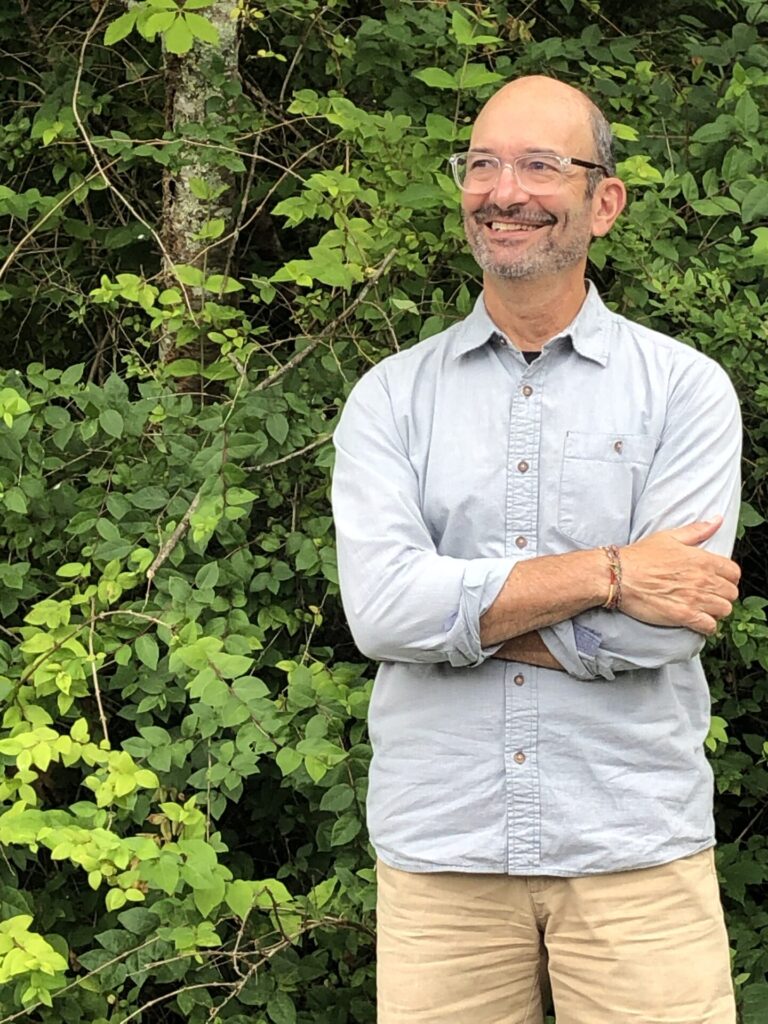Featured
Alumnus’ New Book Explores Life of Early American Naturalist, Artist

By Erin Garrett
Outdoor and environmental author Patrick Dean will sign his new book, “Nature’s Messenger: Mark Catesby and His Adventures in a New World,” at Square Books in Oxford at 5:30 p.m. June 19.
The text tells the story of Catesby, a naturalist in the 1700s who produced the first-ever illustrated account of American flora and fauna. The young traveler from London began studying these plants and animals in 1712, predating the work of well-known naturalist John James Audubon by nearly a century.
“The times that Catesby lived in had so much going on,” said Dean, who earned a bachelor’s in political science from the University of Mississippi in 1981. “It was a time of incredible change – there were encounters with new plants and animals and new social and economic systems. New cultures were interacting with each other.
“The frontier was where Augusta, Georgia, is now. There were bison in the foothills of the Piedmont in South Carolina. Catesby ended up right in the middle of that.”
During that time in England, there was a sudden interest in American horticulture. Gardens of this nature became a status symbol in Britain.
“He wasn’t just on the edge of the discovery and classification of the plants and animals he found in America, but he was also a driver of the horticultural side,” Dean said. “He sent plants, seeds and information back to England to encourage this interest.”
Catesby is perhaps most recognized for his artwork, Dean said. He painted intricate and vibrant watercolors of the plants and animals he found. He was one of the first to depict the interrelationships of species.
He would depict birds on the plants that they ate. He also created one of the first depictions of a bison ever seen in England.
When he returned to London in 1726, he etched his own illustrations for his work, “The Natural History of Carolina.” First editions of this book today sell for upwards of $240,000.
Dean first read about Catesby by chance in a gardening magazine. He found a short blurb in the publication, Garden Design, that told of an art exhibition by Catesby.
“I couldn’t find anything else about him, so I shrugged my shoulders and moved on,” Dean said. “It was right before the dawn of the internet.
“Years later, he popped into my head, and I thought, ‘I wonder if that guy Catesby would make an interesting topic for a book.’”
As it turned out, he did. However, there are pieces of Catesby’s story that are unknown. Some of these are mysterious, and some are challenging.
“There are no known images of Catesby,” Dean said. “We have some physical descriptions, however. There are also chunks of his life where there are no existing letters of his – there are some good gaps.”
One letter that does remain details Catesby’s request to purchase a “Negro boy” to assist him with his natural history research. His subsequent letters lead readers to infer that this did occur, although they never state it explicitly.
In his book, Dean confronts the issue head on.
“We can only speculate that he did it and what he did after,” he said. “We must ask these questions and realize that these questions could be asked about tens of thousands of people who were brought over from Africa. They are stories we’ll never know.”
Catesby was, however, unusually receptive to consulting non-Europeans in America, Dean said. He cites knowledge he gained from Native Americans and enslaved Africans, such as what they grew to eat and use for medicine.
Ralph Eubanks, faculty fellow at UM, will lead a discussion of “Nature’s Messenger” at the Square Books event. Eubanks is a renowned nonfiction author and friend of Dean.
“Patrick is an excellent researcher and a very sensitive writer,” Eubanks said. “He cares about his subjects, and he cares about making sure he is as thorough as he can be.
“Thinking about enslaved people and the use of them was a part of Patrick’s thinking about this book. It’s good to see that someone is writing that story while not ignoring the complex and uncomfortable.”
A resident of Cumberland, Tennessee, Dean has worked as a political media director and teacher and is director of a rail-trail nonprofit in addition to writing. He said he is happy to return to Oxford for the signing. The launch of his first book, “A Window to Heaven” (Pegasus Books, 2021), was almost completely virtual.
“This year we get to do a real launch,” he said. “It will be a really sweet sort of reunion. I enjoyed my time in Oxford and at the university. It expanded my mind in a great way.”










































